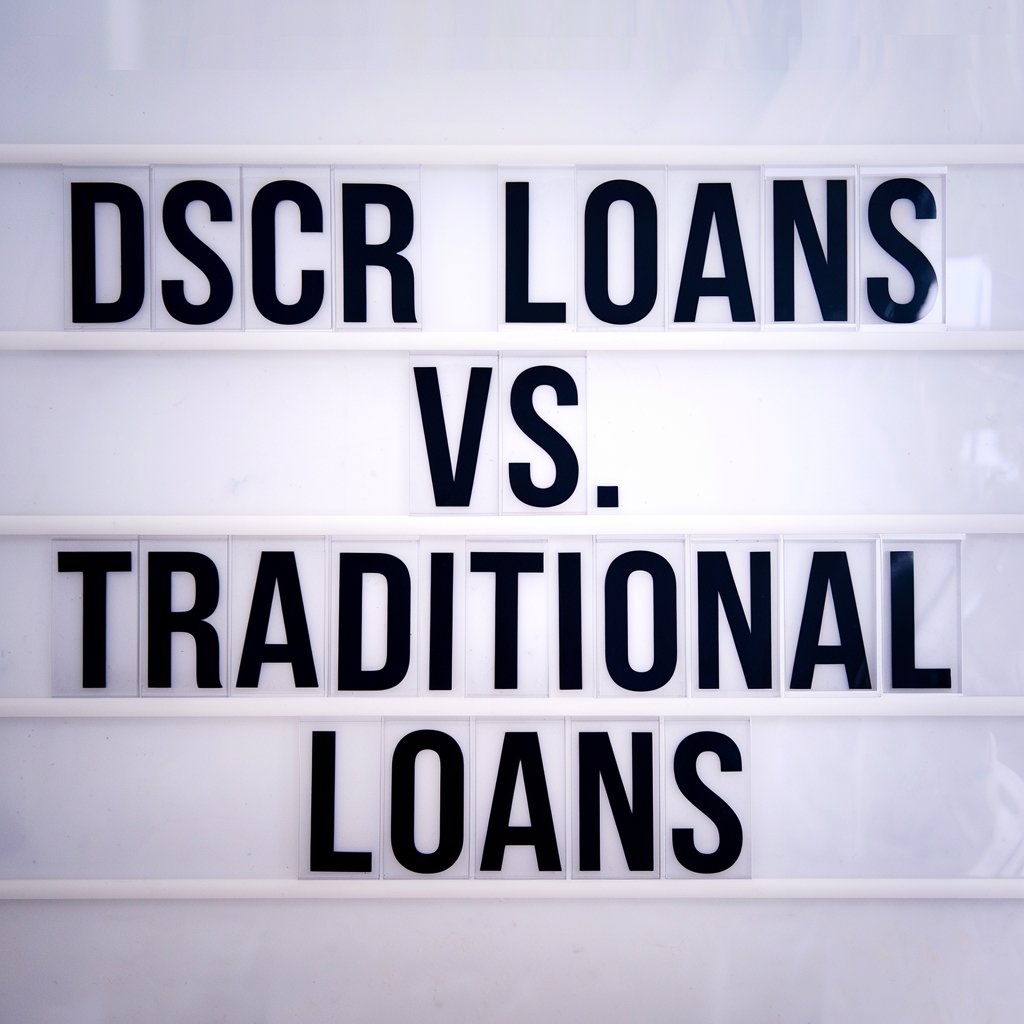When it comes to financing real estate investments or business operations, understanding the differences between DSCR Loans and traditional loans is crucial. The right choice between these two options can significantly impact your financial strategy and investment outcomes. In this blog, we’ll explore the distinctions between DSCR Loans and traditional loans, and help you determine which might be more suitable based on your financial situation and investment goals.
What Are DSCR Loans?
DSCR Loans, or Debt Service Coverage Ratio loans, are primarily used by real estate investors and businesses to finance income-generating properties. The key feature of DSCR Loans is that they focus on the property’s cash flow rather than the borrower’s personal income or credit score. Lenders evaluate the property’s ability to generate enough rental income to cover the debt payments, ensuring that the loan is self-sustaining.
Keyword usage: DSCR Loans provide a unique advantage for borrowers who might not have a strong personal credit history but own or wish to acquire properties that generate steady income.
What Are Traditional Loans?
Traditional loans, on the other hand, are typically provided based on the borrower’s personal creditworthiness, income, and financial history. These loans are commonly used for a wide range of purposes, from purchasing a primary residence to financing business operations or personal expenses. Traditional loans come in various forms, such as fixed-rate mortgages, variable-rate mortgages, and personal loans.
Keyword usage: Unlike DSCR Loans, traditional loans often require extensive documentation and a thorough review of the borrower’s financial situation, including their income, employment status, and credit score.
Key Differences Between DSCR Loans and Traditional Loans
To determine which loan is better suited for your needs, it’s essential to understand the key differences between DSCR Loans and traditional loans. Here are some critical factors to consider:
- Qualification Criteria
- DSCR Loans: The primary qualification criterion for DSCR Loans is the property’s ability to generate sufficient income to cover the loan payments. Lenders use the Debt Service Coverage Ratio (DSCR) to assess this. A DSCR of 1.0 means the property generates enough income to cover the debt payment; a higher DSCR indicates a more favorable cash flow situation.
- Traditional Loans: Qualification for traditional loans heavily depends on the borrower’s personal credit score, income, debt-to-income ratio, and employment history. Borrowers must provide extensive financial documentation to prove their ability to repay the loan.
- Documentation Requirements
- DSCR Loans: These loans require minimal personal financial documentation since the primary focus is on the property’s income. Borrowers typically need to provide proof of the property’s income, expenses, and rental agreements.
- Traditional Loans: Borrowers must provide comprehensive financial documentation, including tax returns, pay stubs, bank statements, and more. The process can be lengthy and cumbersome, especially for those with complex financial situations.
- Interest Rates and Terms
- DSCR Loans: Interest rates on DSCR Loans can vary based on the property’s performance and market conditions. Generally, these rates may be slightly higher than traditional loans due to the perceived risk associated with relying on rental income.
- Traditional Loans: Interest rates for traditional loans are often determined by the borrower’s creditworthiness and prevailing market rates. Borrowers with excellent credit scores typically receive more favorable terms and lower interest rates.
- Flexibility and Use of Funds
- DSCR Loans: These loans are highly flexible in terms of use. They are ideal for purchasing or refinancing income-generating properties, such as rental properties, commercial real estate, or multi-family units.
- Traditional Loans: Traditional loans are versatile and can be used for various purposes, including purchasing a primary residence, funding business operations, or covering personal expenses. However, they may have more stringent restrictions depending on the loan type.
Which Loan is More Suitable for You?
Choosing between DSCR Loans and traditional loans depends on several factors, including your financial situation, investment goals, and the type of property you intend to purchase or refinance. Here’s a breakdown to help you decide:
- Your Credit Score and Financial History
If you have a strong credit score, steady income, and a clean financial history, a traditional loan might be more suitable. Traditional loans often offer lower interest rates and more favorable terms for borrowers with excellent credit.
However, if your credit history is not as strong or you have fluctuating income, DSCR Loans might be a better option. These loans focus on the income-generating potential of the property, making them ideal for investors who rely on rental income rather than personal income. - Type of Property and Investment Goals
For real estate investors looking to acquire or refinance income-generating properties, DSCR Loans are an attractive option. They provide the flexibility needed to grow a real estate portfolio without being overly concerned about personal financial documentation or credit history.
On the other hand, if you are looking to purchase a primary residence or a property that is not primarily intended for generating rental income, a traditional loan might be more appropriate. - Ease and Speed of Approval
DSCR Loans generally have a quicker approval process due to the reduced need for personal financial documentation. If you need financing quickly to capitalize on a real estate opportunity, DSCR Loans might be the way to go.
Traditional loans, with their extensive documentation requirements and thorough vetting process, may take longer to approve. However, they often provide more predictable terms and lower interest rates for those who qualify.
Pros and Cons of DSCR Loans
Pros:
- Focuses on property income, not personal credit.
- Faster approval process with less documentation.
- Flexible use of funds for income-generating properties.
Cons:
- Potentially higher interest rates compared to traditional loans.
- Limited to income-generating properties.
Pros and Cons of Traditional Loans
Pros:
- Generally lower interest rates for qualified borrowers.
- Can be used for a wide range of purposes.
- Predictable terms and conditions.
Cons:
- Requires extensive personal financial documentation.
- Approval process can be lengthy and cumbersome.
Conclusion
Choosing between DSCR Loans and traditional loans depends on your specific financial situation, credit history, and investment goals. If you are a real estate investor focused on acquiring income-generating properties, DSCR Loans may offer the flexibility and ease you need. However, if you have a strong personal financial profile and are looking for lower interest rates and more predictable terms, traditional loans might be the better choice.
Ultimately, it’s essential to evaluate your unique circumstances and consult with a financial advisor or loan specialist to determine which loan type aligns best with your financial strategy. By understanding the key differences and benefits of DSCR Loans versus traditional loans, you can make an informed decision that supports your long-term financial goals.






